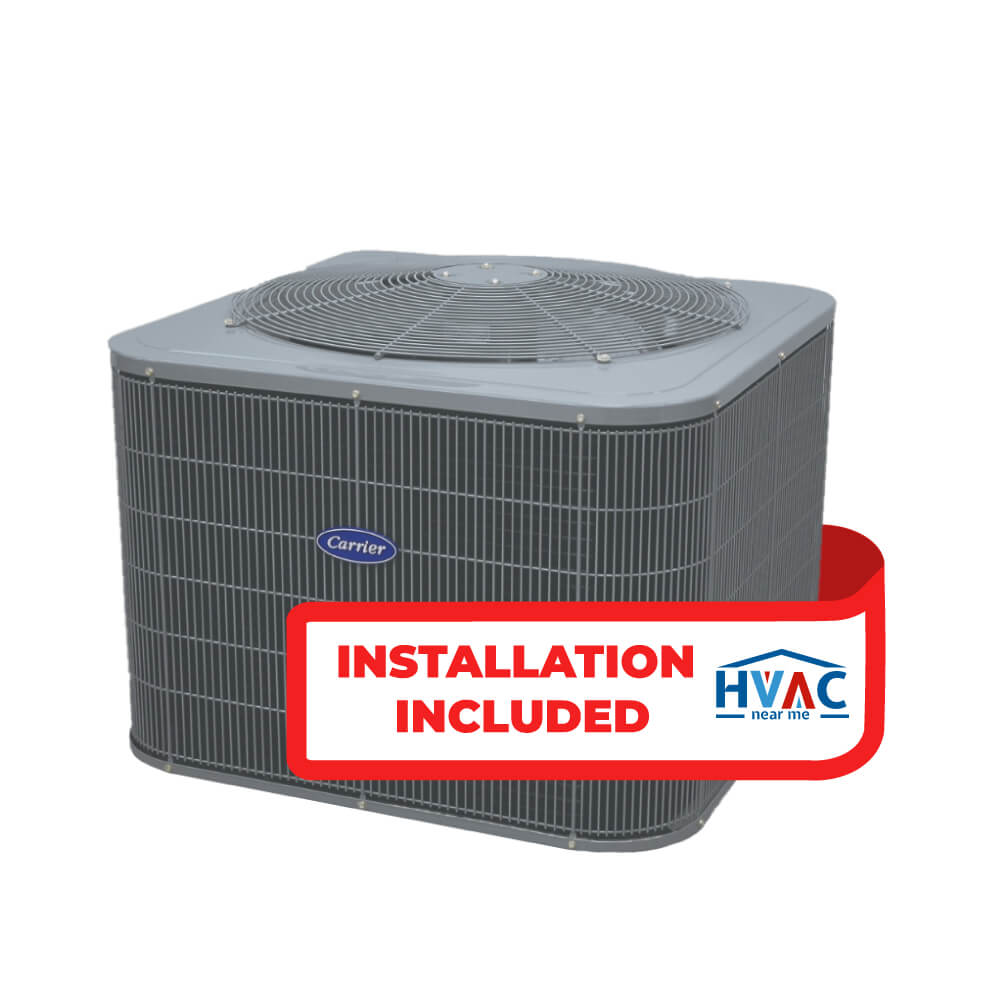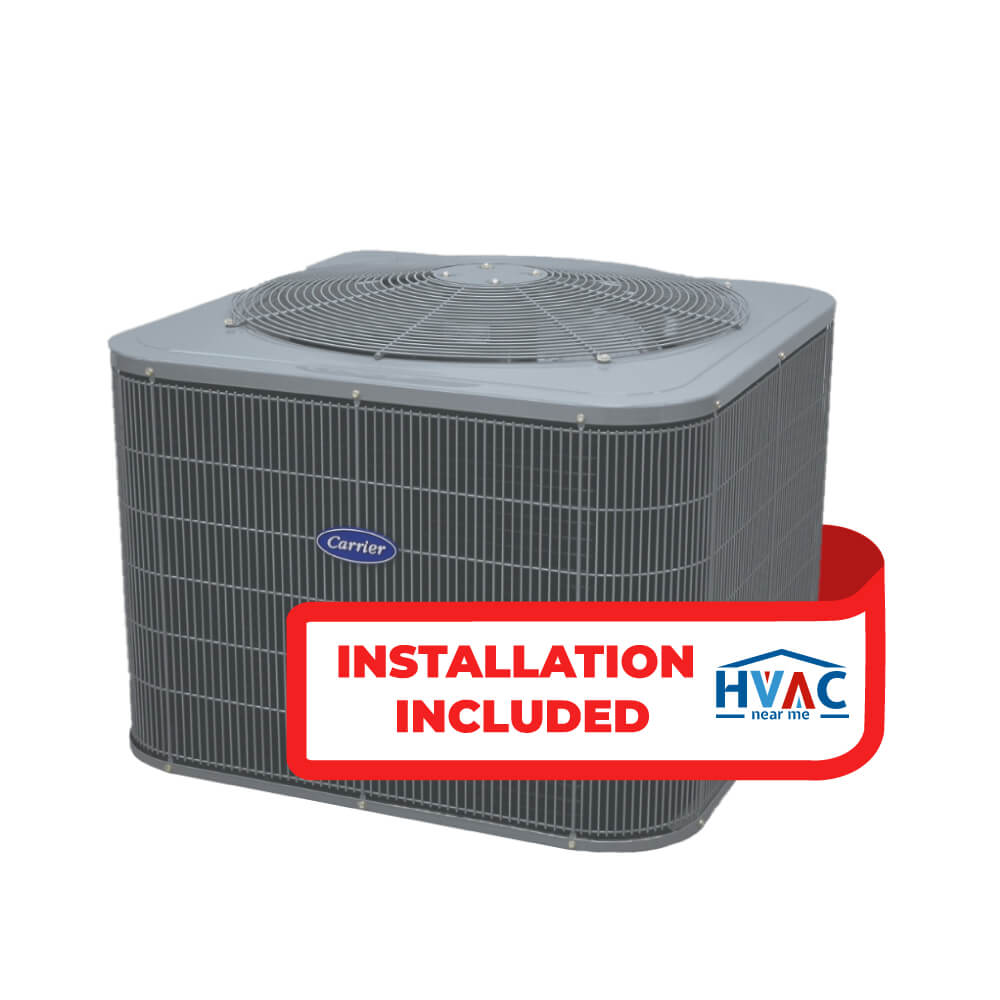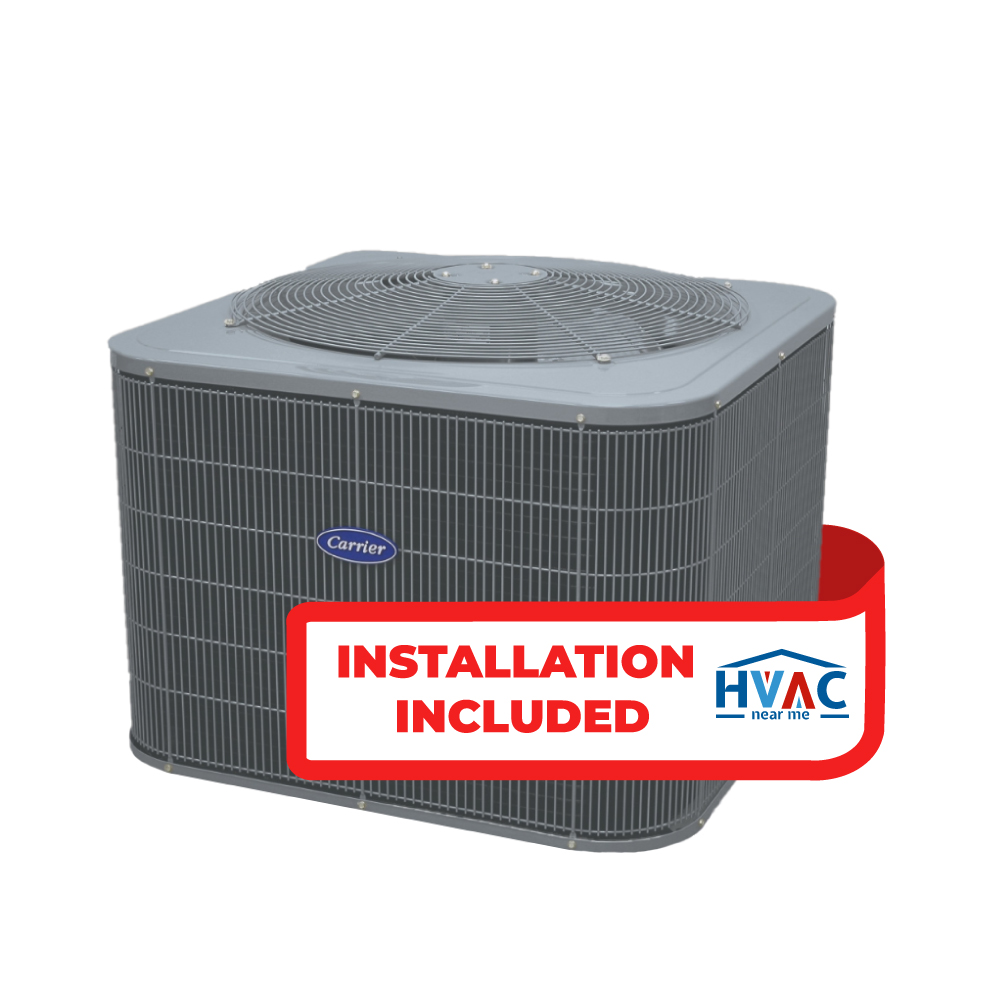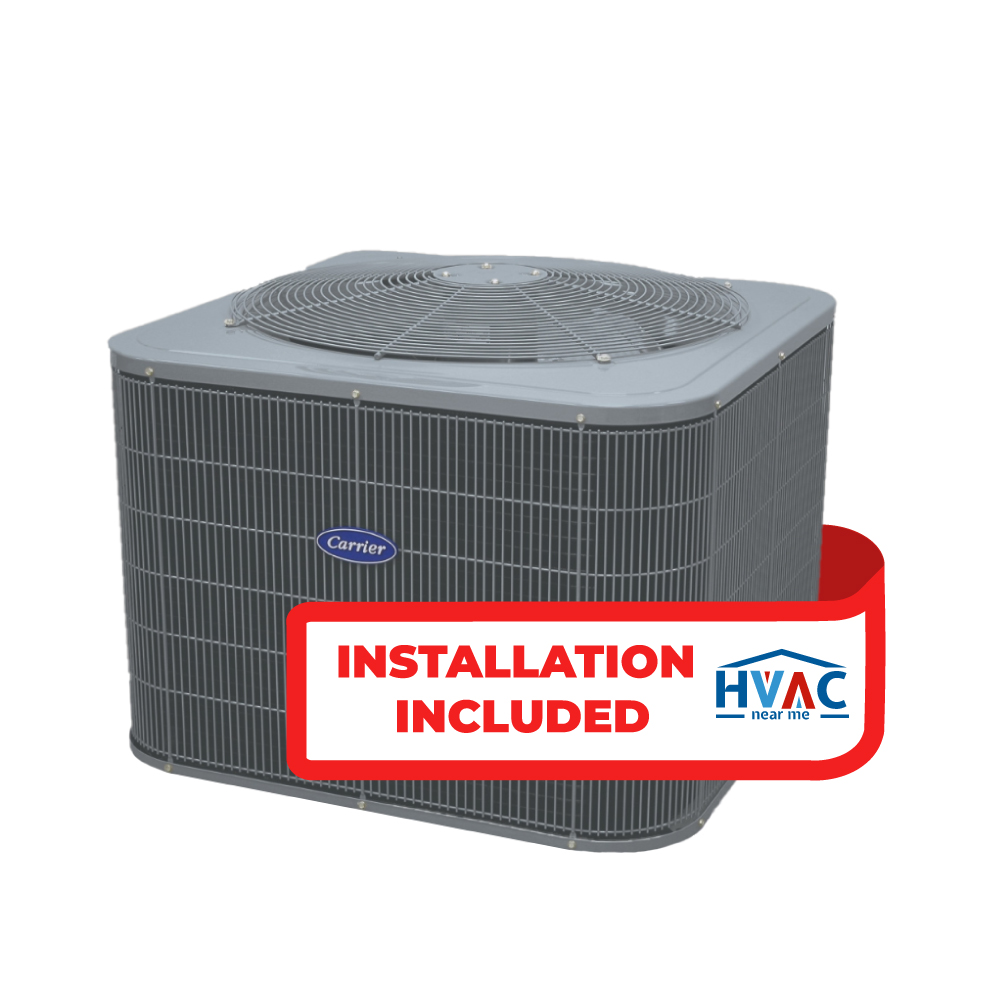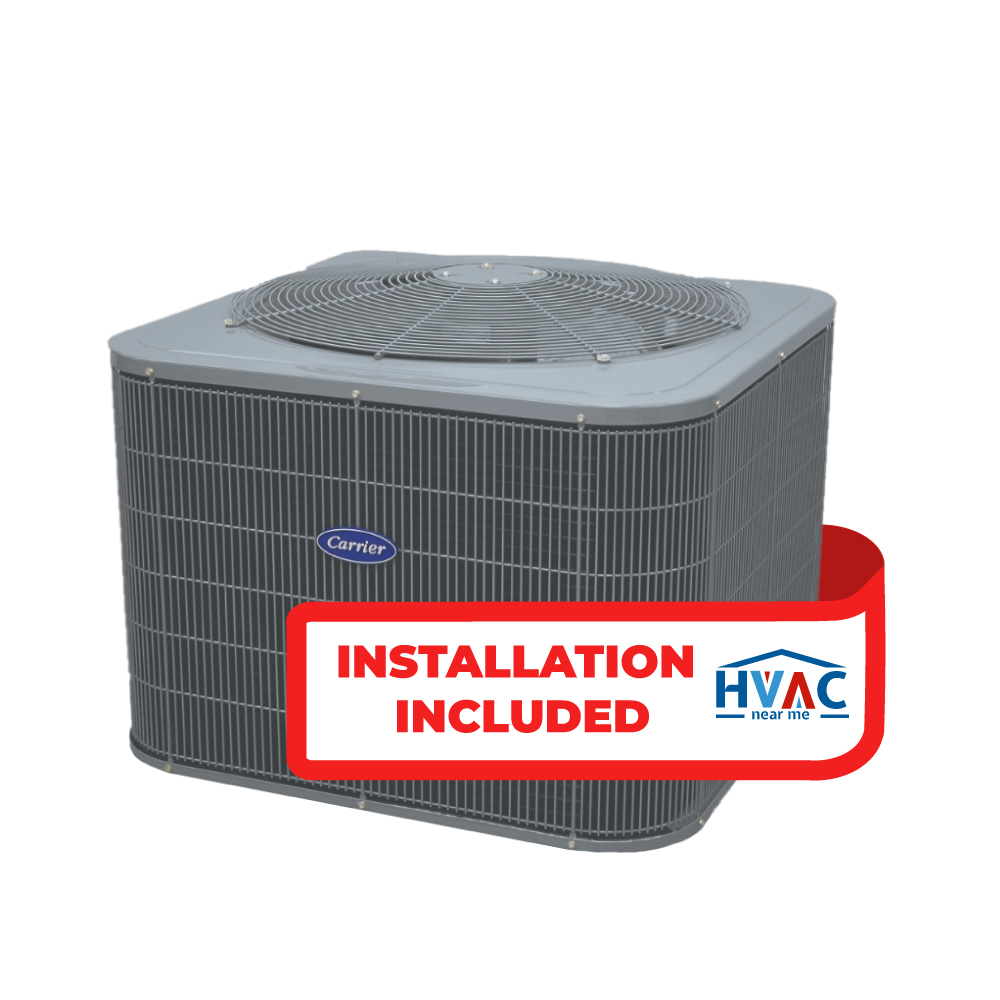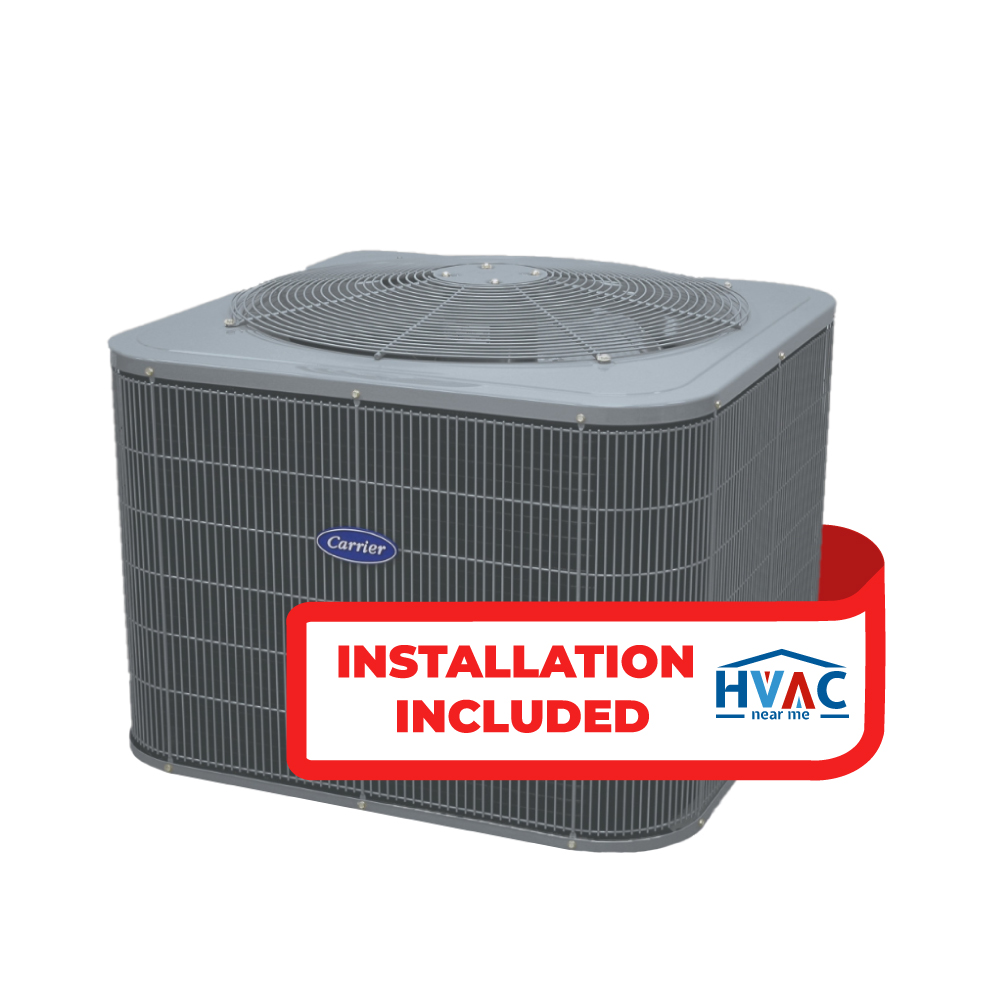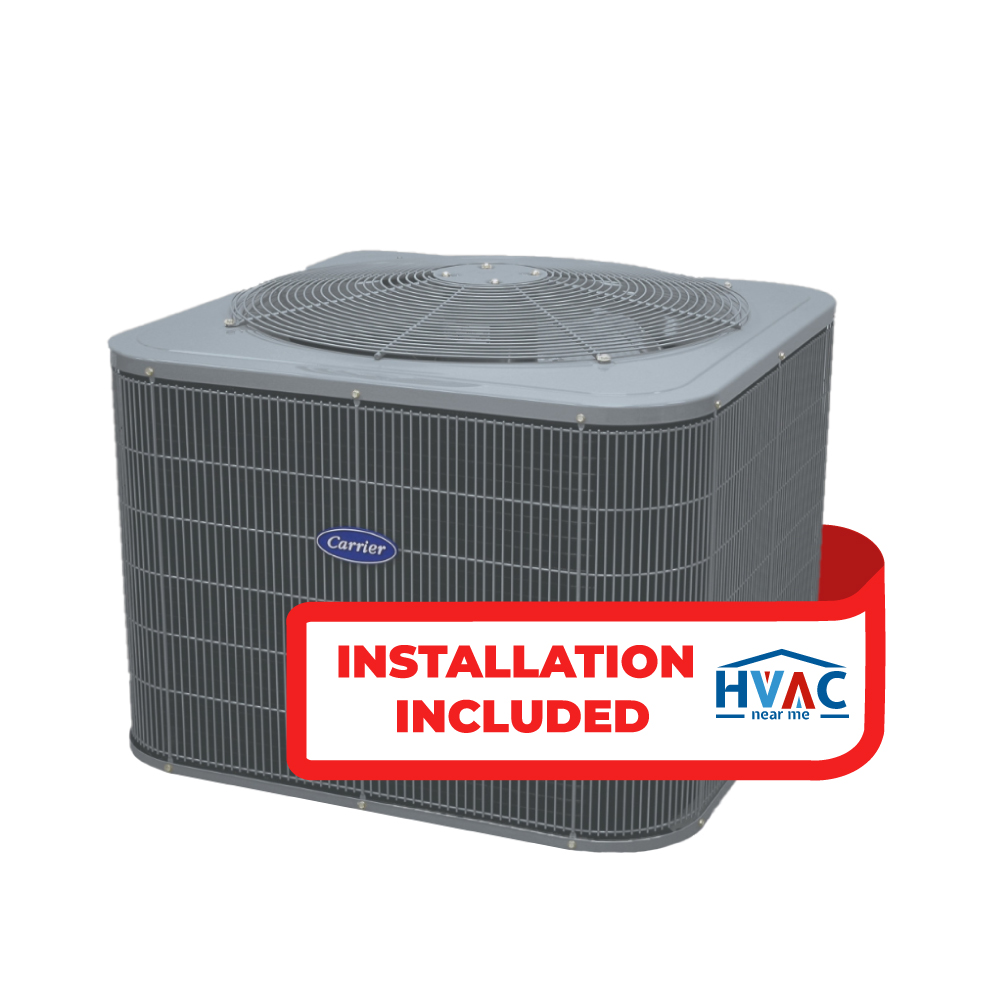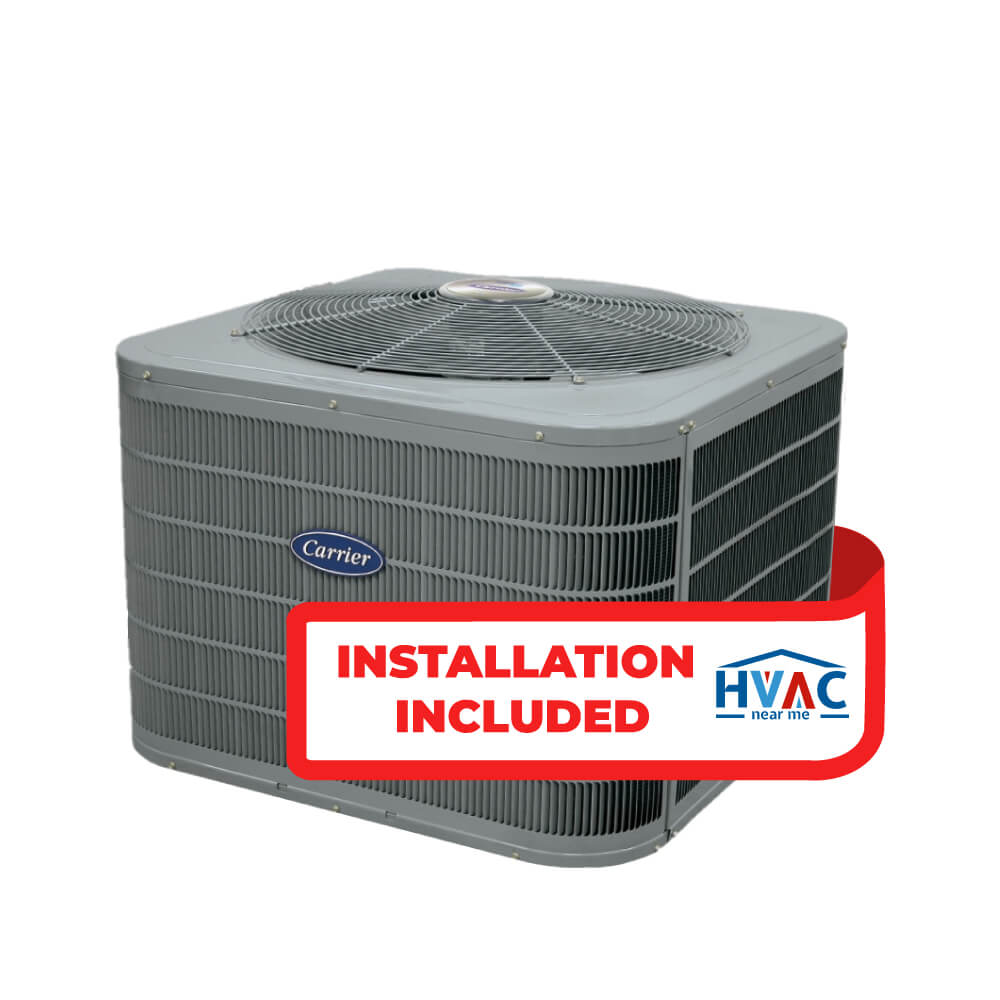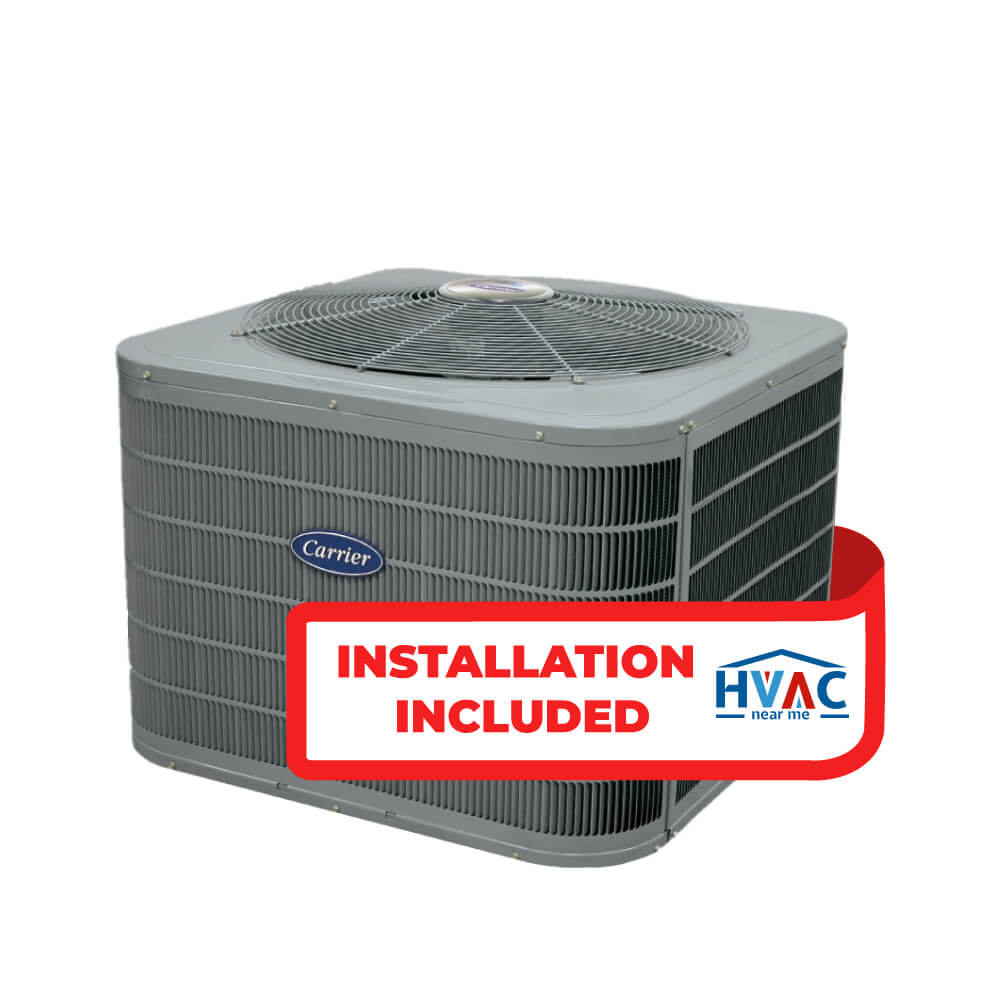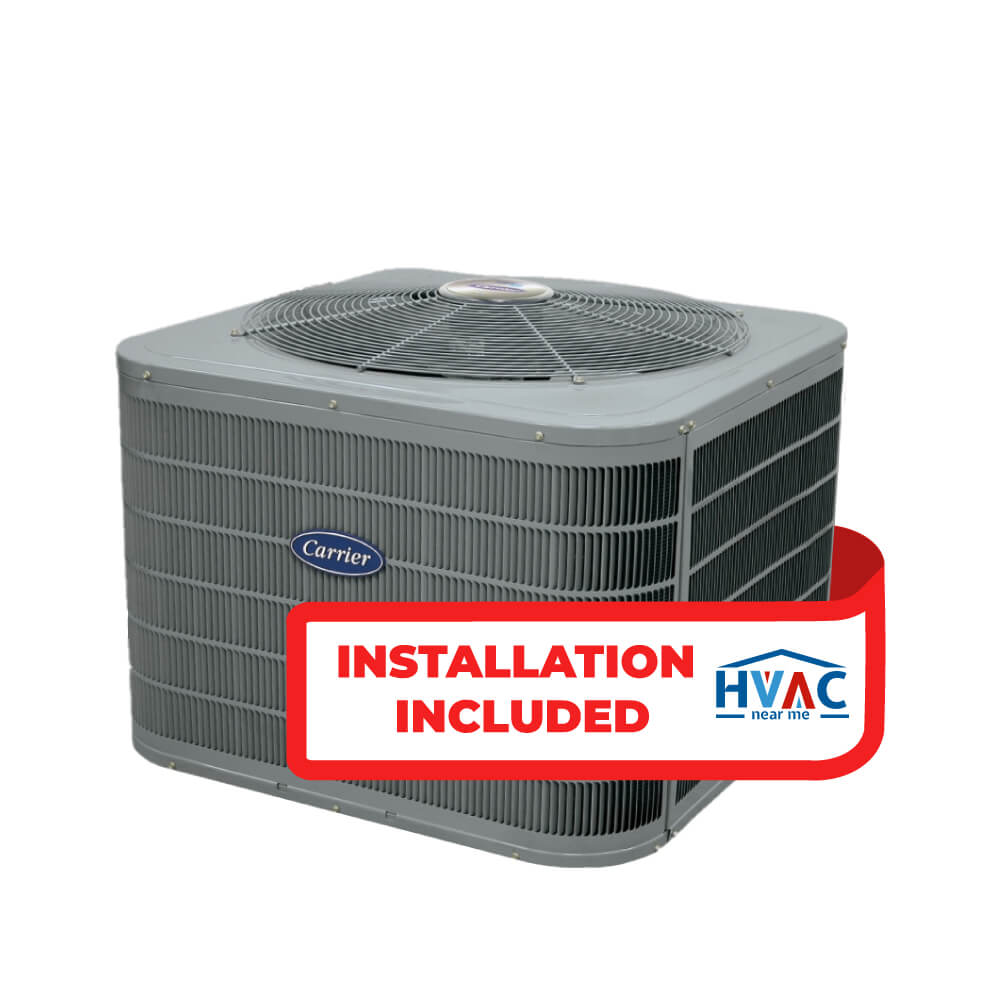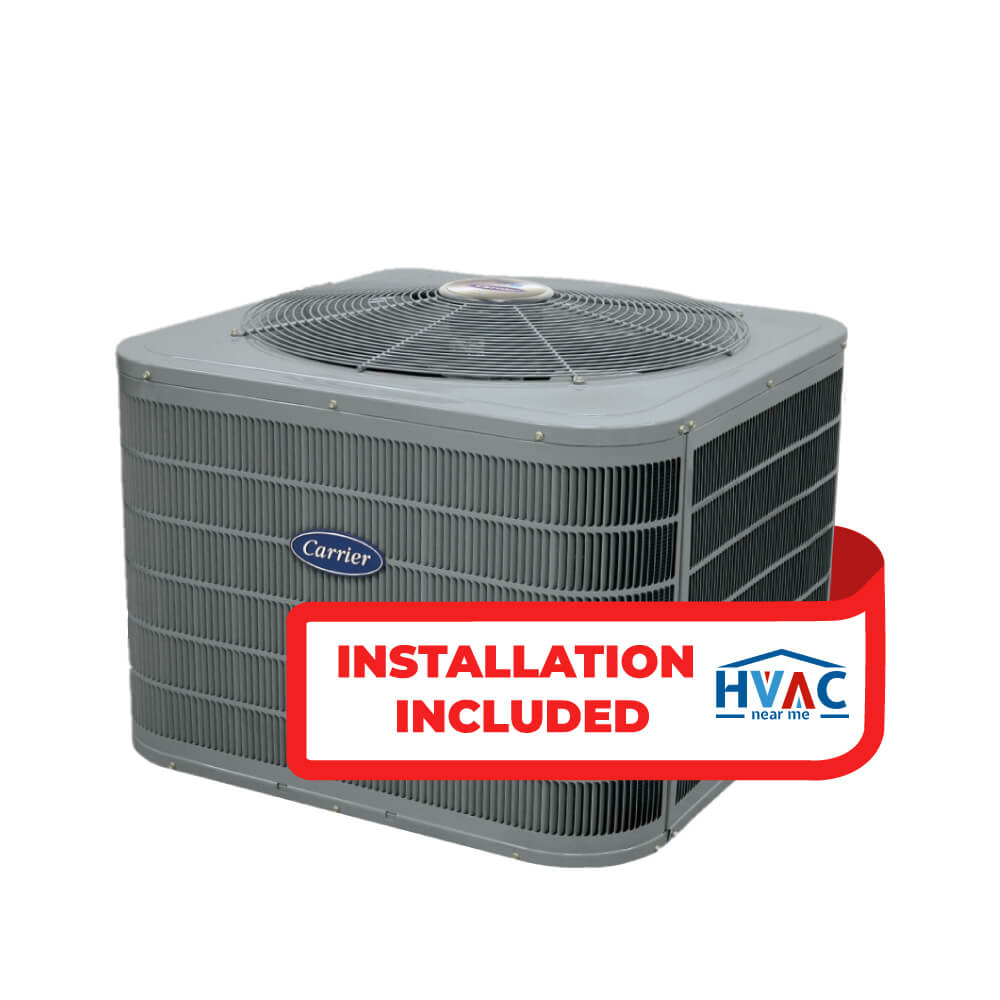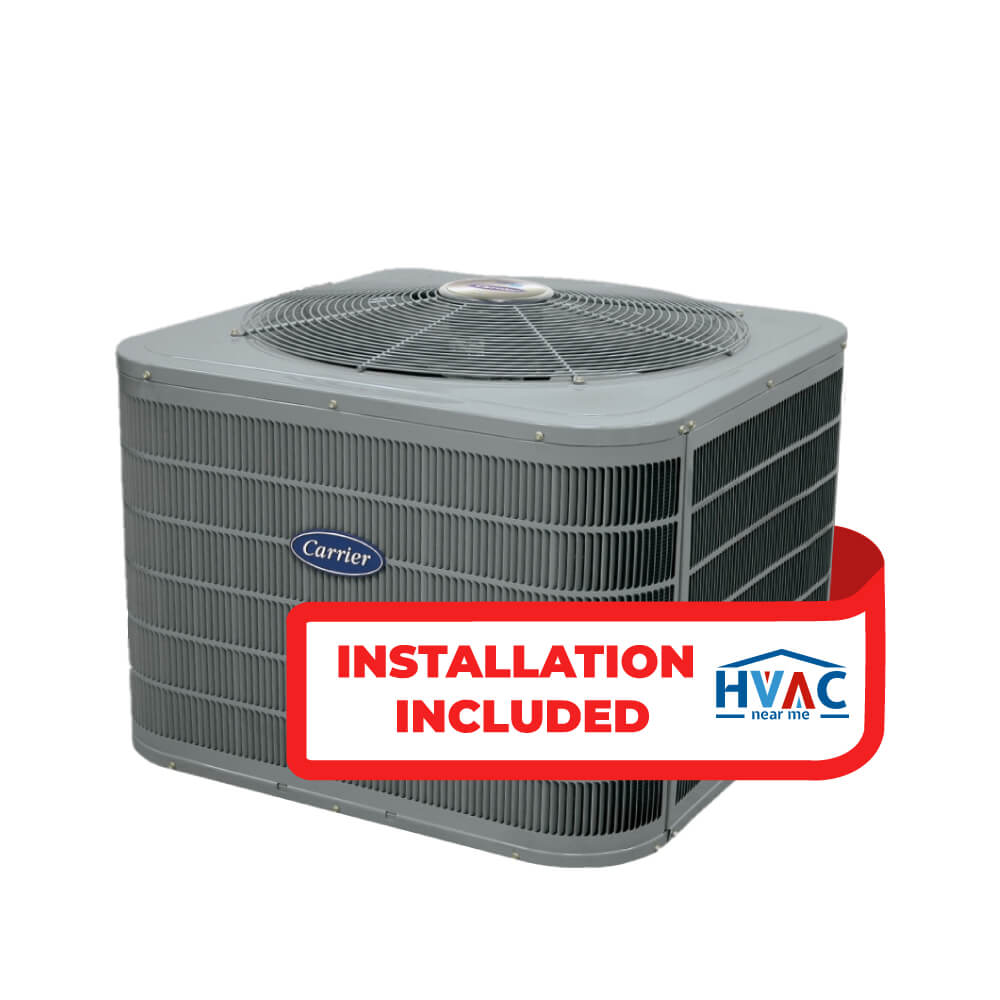
Conditioners


Air Conditioners - Carrier
Carrier Central Air Conditioner – 18,000 BTU – SEER 13 – Model 24SCA4
In stock
Carrier Central Air Conditioner – 24,000 BTU – SEER 13 – Model 24SCA4
In stock
Carrier Central Air Conditioner – 30,000 BTU – SEER 13 – Model 24SCA4
In stock
Carrier Central Air Conditioner – 18,000 BTU – SEER 16 – Model 24SCA5
In stock
Carrier Central Air Conditioner – 24,000 BTU – SEER 16 – Model 24SCA5
In stock
Carrier Central Air Conditioner – 36,000 BTU – SEER 13 – Model 24SCA4
In stock
Carrier Central Air Conditioner – 30,000 BTU – SEER 16 – Model 24SCA5
In stock
Carrier Central Air Conditioner – 18,000 BTU – SEER 16 – Model 24SPA6
In stock
Carrier Central Air Conditioner – 24,000 BTU – SEER 16 – Model 24SPA6
In stock
Carrier Central Air Conditioner – 30,000 BTU – SEER 16 – Model 24SPA6
In stock
Carrier Central Air Conditioner – 36,000 BTU – SEER 16 – Model 24SPA6
In stock
Carrier Central Air Conditioner – 42,000 BTU – SEER 16 – Model 24SPA6
In stock
Official Carrier® Dealer for Central Air Conditioners
Carrier Central Air Conditioners
Central air conditioners provide whole-house cooling with a consistent and reliable performance. These systems integrate seamlessly with ductwork, making them ideal for modern homes or those already equipped with ventilation systems.
How They Work: Central air conditioners use refrigerant to absorb heat from indoor air and transfer it outside. The cooled air is then distributed through ducts by a fan. Modern systems often incorporate smart thermostats, which automate temperature control to maximize energy efficiency.
Ideal For:
Homeowners with existing duct systems or those planning to invest in a long-term, whole-house cooling and heating solution. Central AC systems also add significant property value and appeal to potential buyers.
Frequently Asked Questions (FAQs)
Still Have Questions?
At HVAC Near Me, we’re dedicated to providing expert guidance tailored to your specific needs. Our team is ready to assist whether you’re considering buying a new air conditioning system, exploring energy-efficient options, or troubleshooting issues with your current setup.
From answering your questions about installation to offering maintenance tips for optimal performance, we’re your trusted partner in ensuring your home remains comfortable and cozy every season. Reach out today, and let us help you find the best solutions to meet your heating and cooling needs!

How do I know which size of air conditioner I need?
Determining the correct size for your air conditioner is essential for optimal performance and energy efficiency. A professional load calculation considers factors like your home’s square footage, insulation, number of windows, and sun exposure to recommend the ideal system size. Avoid relying on rough estimates, as over-sized units cycle on and off too quickly, wasting energy, while under-sized systems struggle to cool efficiently. Consulting an HVAC professional ensures your unit is properly sized for your home and climate.
Can I install an AC unit myself?
While it might be tempting to save money with DIY installation, improper installation can void warranties, lead to inefficiencies, or even pose safety risks. Central and ductless mini-split systems require professional expertise in refrigerants, electrical work, and precise calibration. However, portable or window AC units are more suitable for DIY installation, as they typically involve a straightforward setup. Always check local legal requirements, as some regions mandate professional installation for larger systems.
What is SEER, and why does it matter?
The Seasonal Energy Efficiency Ratio (SEER) measures an air conditioner’s cooling efficiency over a typical cooling season. A higher SEER rating means the unit consumes less electricity, reducing your energy bills and environmental footprint. For Canadian homeowners, a unit with a SEER rating of at least 14–16 is generally recommended, with Energy Star-certified models offering even greater efficiency and savings.
Are there any government rebates or tax credits available?
Yes, federal and provincial programs in Canada often offer rebates and incentives for energy-efficient air conditioners. The Canada Greener Homes Grant and provincial programs like Ontario’s Save on Energy initiative provide financial support for upgrading to high-efficiency systems. Check government and utility company websites for the latest updates, eligibility criteria, and application deadlines.
Should I buy a used or refurbished unit to save money?
While buying a used or refurbished air conditioner might save money upfront, there are significant risks. Used units often come without warranties, increasing the likelihood of costly air conditioner repairs or breakdowns. Refurbished units may be safer if inspected and certified by a reputable dealer. Always verify the unit’s condition, history, and reliability of the seller before purchase.
Do air conditioners also help with humidity control in humid provinces like Ontario or Quebec?
Air conditioners naturally dehumidify as part of their cooling process by condensing moisture from the air. However, in highly humid regions, an AC alone may not be sufficient to maintain optimal indoor humidity levels. In such cases, a separate dehumidifier can enhance comfort and prevent mold growth. Choose an AC with a built-in humidity control feature for added convenience.
How often should I have my AC serviced?
Yearly maintenance is recommended, ideally before summer, to ensure your system operates efficiently. Tune-ups should include checking refrigerant levels, cleaning coils, and inspecting electrical components. Based on manufacturer guidelines, filters should be checked monthly and replaced or cleaned as needed. In regions with heavy AC use, biannual servicing may be beneficial.
What is the lifespan of a typical air conditioner in Canada?
The average lifespan of a central air conditioner is 10–15 years, while ductless mini-splits typically last 8–12 years. Proper maintenance, such as regular filter changes and professional servicing, can extend these lifespans. Factors like local climate and usage frequency also play a role; systems in coastal or humid areas may experience faster wear.
Is it worth upgrading to a heat pump instead of a traditional AC?
Heat pumps provide heating and cooling, making them a versatile and energy-efficient option for many Canadian homes. They are particularly effective in regions with moderate winters but may require supplemental heating in harsher climates. While the initial cost is higher, potential energy savings and year-round functionality often justify the investment.
How can I improve the efficiency of my current AC system?
Simple steps like cleaning or replacing filters regularly, sealing duct leaks, and improving home insulation can significantly enhance your AC’s efficiency. Upgrading to a smart thermostat allows precise temperature control and scheduling, optimizing energy use. Regular professional tune-ups ensure your system runs at peak performance, reducing energy costs and extending its lifespan.

